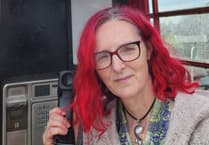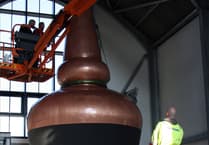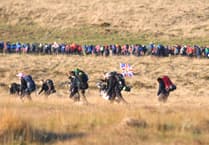Teams of amateur explorers are using the exposed terrain and extreme conditions of Dartmoor to train for an Arctic environmental expedition.
The team is being trained by the Princetown-based Ice Warrior exploration project to collect environmental data on behalf of the US space agency NASA to help monitor global changes, including climate change.
Melting ice is a major indicator of rising global temperatures and ice thickness is one of the key tasks of the group which is visiting the Northern Pole of Inaccessibility – one of the remotest and unexplored places – to measure the ice, terrain changes and even polar bear numbers.
Ian Bishop, a nuclear engineer from Princetown, has been training to join the expedition and as an outdoor skills instructor.
Since returning from Svalbard in May after completing advanced polar training, he has been fundraising to fund his role and training as much as possible in terms of hard skills such as fitness, rope work, first aid, rescue techniques and using tents. Basically anything they plan in the Arctic that can be practised on Dartmoor.
The elements are the same on Dartmoor as the Arctic, so the wind and rain can test you fully, especially on the exposed moors which is the same as the open ice of the Arctic.
‘Everything is harder in Dartmoor weather, simply working up a stove to put the kettle on or putting up a tent is so much harder in the wind and rain with no shelter,’ said Ian. It tests you mentally and physically. That’s when working as a team really helps.’
He has been undertaking a double challenge, training as an instructor on the Norwegian ice and snow for the first time and also instructing fellow team members who have not been on the ice before.
Ian added: ‘Aside from my own personal training, I as a trainee instructor, have been training the next Ice Warrior squad members during their ten-week core skills course run from Ice Warrior base camp in Princetown.
‘As part of that I have qualified and instructed as an outdoor first aid instructor and instructed new squad members in the skills required to take part in polar exploration.’
He added he had made some lifelong friends through the last 18 months of training and they are reuniting for a wedding celebration in December.
‘Next up for me is an eight-day training expedition in Svalbard, in January. This will be -40 degrees and in 24-hour darkness as the winter ‘polar night’. So, it’s a very different prospect to the -20 degrees we had in May!’





Comments
This article has no comments yet. Be the first to leave a comment.